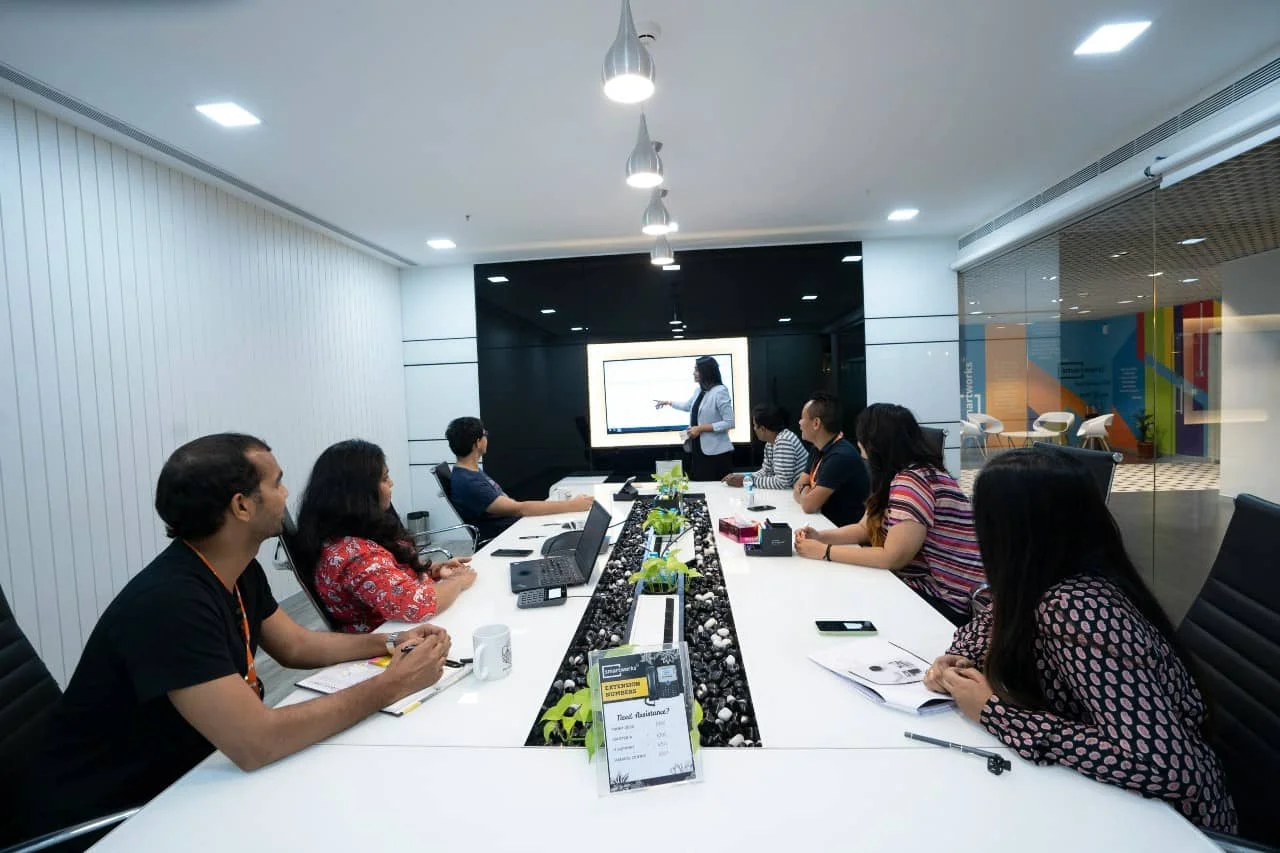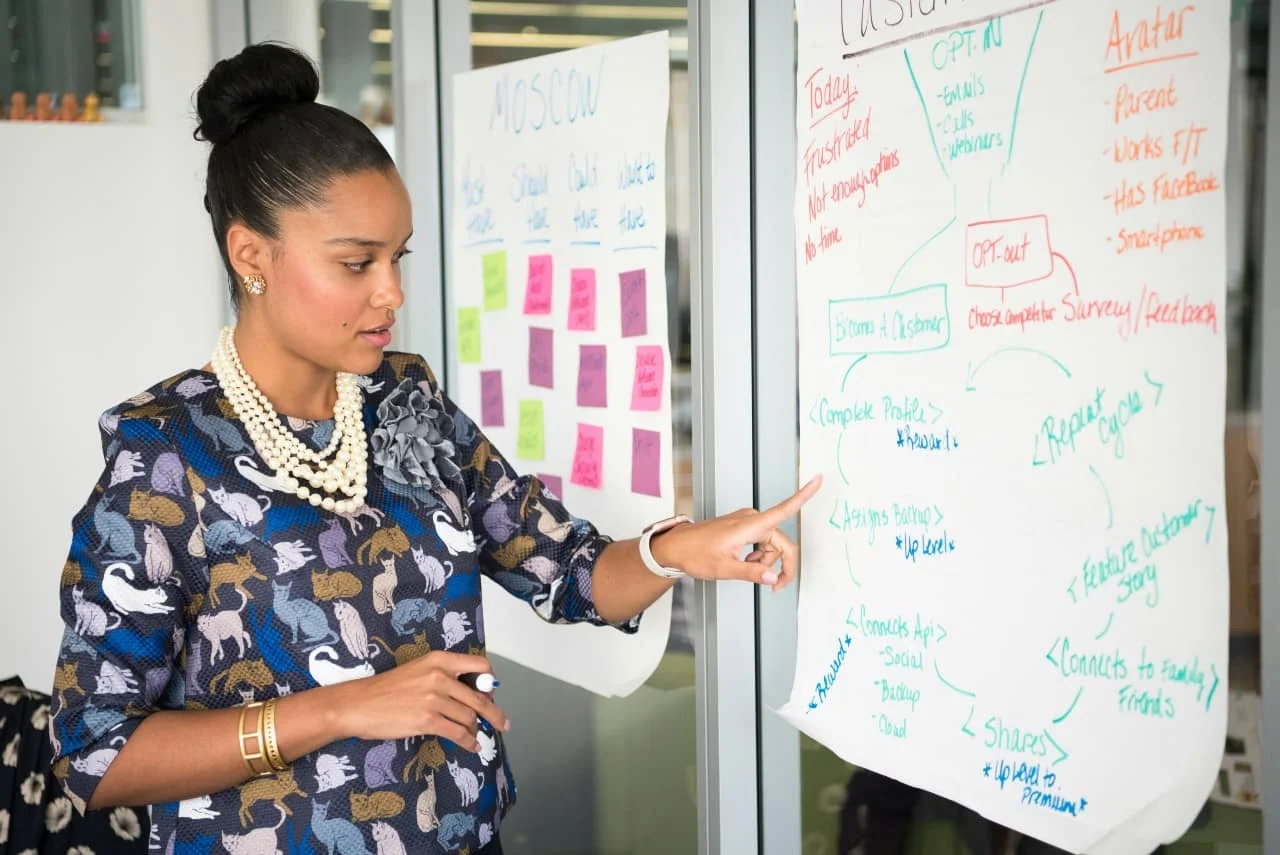The CEO’s Dilemma: Why Executive Isolation Is Your Biggest Strategic Risk
Feb 16, 2026
Today we're addressing a problem that gets whispered about in boardrooms but rarely confronted head-on: executive isolation. Are you feeling isolated?
Reviewed by Thuy Sindell, PhD. Written by Milo Sindell, MS.
Published on April 3, 2025
14 minute read
What is leadership coaching & how does it benefit a company?
In 2025’s hyper-competitive business landscape, leadership coaching is the competitive edge companies need to outshine competitors and seize market leadership.
Unlike outdated development methods, which are often generic, costly, and misaligned with real-world needs, leadership coaching offers personalized guidance to sharpen leaders’ skills and address immediate challenges, building agile, visionary leaders, and resilient teams ready to meet industry demands.
Read on to learn more.

Leadership Coaching is the systematic process of assessing & enhancing the leadership abilities of leaders across an organization, from individual contributors to mid-level managers, senior executives and the CEO.
Leadership coaching helps leadership at all levels across the organization develop self awareness, improve effectiveness, and aligns each individual leaders growth with organizational goals.
As a strategic tool, leadership coaching is so impactful because addresses some of the most critical challenges in today’s business environment: acquiring, developing, and retaining top talent for the future of the company, while driving business performance in the present.

Leadership coaching based on behavioral science is considered one of the most impactful ways to develop leaders and help leaders perform better.
First - It’s highly personalized, giving the leader being coached a great deal of ownership—and accountability over the process and its success.
Second - Coaching’s personalized nature makes it constantly applicable, allowing the leader to tackle timely real-world problems during coaching sessions and to swiftly apply the lessons in the workplace for immediate impact.
Third - Unlike a number of other development methods, coaching can create sustainable learning and lasting behavior change.
Additionally, leadership coaching provides leaders with a safe space for exploring and addressing difficult emotions such as anxiety, stress, and even anger. Recognizing and reorganizing these emotions with a fresh perspective can be key to developing strong leaders who are able to withstand the demands of their role without compromising the mental health or wellbeing of themselves and others while pursuing the desired outcome.

Leadership coaching is an essential tool for modern companies looking to succeed in today’s fast-paced, highly competitive business environment.
Successful leaders need a combination of many different skills and qualities in order to perform well. They must be able to:
Among a number of other outcomes.
By providing guidance, leadership coaches help empower leaders and maximize performance.
From handling staff conflicts to managing organizational change and driving innovation, instituting a leadership development program can help forward-thinking companies thrive in any situation.
Leadership coaching works by offering one-on-one training and guidance that focuses on the specific needs of individual leaders. This can take place through a range of different activities and exercises, including workshops, one-on-one discussions, and self-assessment tools.
Most importantly, however, coaching helps leaders develop new ways of thinking about their work and empowers them to improve their performance in a structured and consistent way.
This allows them to become more effective at achieving their goals while also enhancing the overall quality of their leadership style.
As such, it is no surprise that many companies are incorporating leadership coaching programs into their development strategies in order to optimize productivity and performance levels among their workforce.
Ultimately, leadership coaching offers a powerful way for companies to cultivate strong leadership skills that can benefit themselves and their employees for years to come.

While leadership development is a $14 billion industry; there is a common consensus that:
The three major reasons for this, as put forth by McKinsey Quarterly, are:
First, most leadership programs apply a one-size-fits-all approach that does not take into account the context (i.e., the leadership styles and skills suited to the company and its current needs).
Second, the majority of development occurs outside of and is not directly relevant to the leader’s real everyday work. As such, much of the material is not retained nor applied to the job.
Third, many programs do not adequately measure results, and without clear signs of success, development initiatives lose momentum and fall to the wayside. When it comes to supporting leaders at various levels, traditional leadership programs have inferior track records.
A 2014 Deloitte University Press survey showed that only 13% of companies rated themselves as “excellent” in developing leaders at all levels, with over half (51%) stating they are not confident in their ability to maintain “clear, consistent succession programs.”
A fourth key complaint is that the critical mid-level of leadership is often left out of development initiatives—rather, development dollars and time are focused on senior executives and first-line supervisors or first-time managers.
According to Harvard Business Publishing, “This ‘barbell’ approach — heavy on the ends, light in the middle — has exacted a heavy price in terms of underperforming and demoralized middle managers who lack the networking, planning, and team-building skills necessary to excel in the flat organizational structures that are so prevalent today.”
While development programs for the lower levels of leaders mostly consist of ineffective basic classroom training sessions, higher-level leadership development usually takes the form of executive coaching with an executive coach.
Traditional one-on-one executive coaching is effective at increasing the skills and abilities of senior leaders; however, this method is not scalable for leaders at all levels of an organization. Working one on one with an executive coach is a highly personalized nature makes it an expensive proposition that is difficult to standardize, deploy as a strategic development initiative across an organization and gather data regarding program efficacy.
Given the data and what those of us in the leadership field know, both intuitively and from experience, there is a tremendous gap between the field of leadership development and the solutions that seek to address the needs of companies and their leaders.
Enter Skyline G.

There are a few specific, key factors that make our behavioral science-based coaching so effective.
Coaching is highly effective because it is an intrinsic and extrinsic motivator. Participating in coaching makes people “feel good inside” about the company they are working for because the company is investing in them. They then are motivated to give back to the company.
Additionally, coaching allows people to learn new skills that are aligned with company needs. As such, mastering and applying these new skills in the workplace leads to extrinsic rewards, like promotions and other kinds of public recognition.
Another critical benefit of coaching is accelerated learning. Expert guidance and a highly personalized and practical development method allow the coaching participant to master new skills much faster than by trial and error or rote classroom learning.
Although the coach may design the approach, the content of each session is driven by the specific needs of the coaching participant. In fact, to make the most of the coaching engagement, the coachee is expected to be open about his or her current issues and prepared to work on them with the coach.
Lastly, coaching is effective because there is ongoing involvement with key stakeholders to ensure the organization’s and the participant’s needs are being met and aligned. Stakeholder involvement usually happens in three steps:
The factors above are key factors that make coaching so successful. But to be clear - without buy-in from all parties involved, change will be difficult to achieve - especially stakeholders - involvement is key to the success of any coaching program.
Following up on the four points above - without managing, tracking, and measuring the process of improvement of your leadership skills throughout the life of the coaching conversations it’s impossible to quantify the improvement of weak points and provide answers around quantifiable performance improvement.

Leadership coaching is a process that helps leaders learn and practice new skills to improve their performance.
Skyline Group’s Leadership Coaching is a proven systematic methodology to assess and enhance these leadership abilities.
We will partner with your organization to ensure that we adapt our language and incorporate any particular leadership framework or competencies important to your organization, to ensure proper alignment.
We use a consistent four-phase process to ensure we have created the right match and are working towards the right goals.
Objective: Organizational Context & Coach Selection
Through a series of steps and feedback, the primary goal in Phase 1 is to achieve coach and client congruence. Providing the right coaches, for the right objectives, with the right client is essential and a game-changer for organizations.
Objective: Baseline Assessment & Feedback
Through a series of steps and feedback, the primary goal in Phase 2 is to achieve alignment on where clients are and become 100% clear on the objectives using:
Objective: Implement Learning & Coaching to The Plan
Phase 3 is a midway point in the engagement focused on coaching and tracking, and reviewing the dev plan to make sure all the development plan is accurate and the client is receiving satisfactory coaching and feedback. At this point:
Objective: Leveraging Momentum and Planning for the Future
Phase 4 is focused on the lead up to and the final alignment meeting to judge the overall outcome of the engagement and potentially make future plans for continued leadership development with:
By using a consistent four-phase process in a leadership coaching program combining 1:1 coaching, strict data, and technology, we can ensure we deliver directive coaching that impacts all companies and leadership styles in a positive manner to achieve desired outcomes for ones own performance and organizational-wide results.

Skyline Group uses proprietary research-based tools to address all three areas of personality-based style, managerial & leadership competencies, and technical or business domain expertise.
These tools include multi-rater online 360s, online leadership profile, and individual in-depth interviews. Using this thoroughly collected data, the leader develops a set of goals for enhancing the dimensions needing attention.
Coaching is custom-designed for the individual and focuses on removing roadblocks and enhancing the factors that create positive results. Our approach blends the best of business and psychology but is always focused on enhancing performance.
If your organization has preferred tools such as MBTI, DISC, Lominger, etc., or a specific online 360, we will integrate the tool into our work and if required, partner with HR/OD (who is certified in a particular tool) to deliver the feedback to the leader.

By working with a leadership coach, leaders can identify areas where they need to grow, set goals, and receive feedback and support to help them reach their full potential.
In short, leadership coaching is an invaluable tool for helping leaders perform better. By choosing to engage in 1:1 or organizational-wide coaching program, leaders can begin to identify their strengths and weaknesses according to the 28 core leadership competencies below:
See this article for a full breakdown of the 28 core leadership competencies.

As you can see by the core leadership competencies listed above, there is undoubtedly areas where even the best leaders can improve their performance.
Leadership coaches provide a sounding board for leaders to test new ideas, experiment with different approaches, and receive honest feedback. They also help leaders develop action plans and accountability structures to ensure that they are making progress towards their goals.
Overall, leadership coaching is a highly effective way for leaders to improve self-awareness, identify blind spots of personal performance and phase out old habits, improve team dynamics, identify growth opportunities, fine-tune a growth mindset, unlock true potential, perform at their best in any situation and yield better business results.
Leadership coaching can help leaders at all levels of organizations, from new managers to experienced executives, to high-potentials.

Although coaching has been proven effective as a motivator and a means of accelerated learning for executives, it has generally not been available to employees outside the most senior executive ranks.
Traditional leadership coaching engagements are simply too expensive to be deployed across an entire organization. They are not structured to be scalable; they are structured for senior leaders.
However, with advanced technological platforms, and new coaching methods and creativity, companies have the opportunity to deploy the best aspects of leadership coaching and scale a coaching experience to a wide range of employees.
Moving beyond the traditional high-touch model of leadership coaching requires an exploration of new tools, processes, and perspectives on what coaching should look like.
For example, emerging hybrid, peer and group coaching methods all break free from the typical one-on-one in-person coaching model. These methods of scaling coaching can employ technology to scale coaching for an entire organization in a cost-effective and systematic way that maps employee needs to business goals.
As a result, coaching becomes a powerful and highly effective way to not only increase engagement but also grow talent within the organization.
Leadership development is a big business, and companies continue to invest significantly in programs—even though many seem to miss the mark.
As mentioned above, three significant reasons why leadership programs fail are:
But a fourth - and critical reason they miss - is that they do not cater to leaders at all stages of the career cycle.
New leaders, next-generation leaders, and senior leaders all have different development needs, and each group needs to be supported in order to keep a robust succession pipeline in place.
Skyline G has revolutionized the development process by offering affordable solutions extrapolating the effectiveness of 1:1 coaching at scale, and being able to effectively focus on future sources of an organization’s senior leadership:
These groups represent a company’s engine of productivity and developing these leaders is crucial to maintaining the leadership pipeline well into the future. C4X comprises six development solutions that support leaders at various key levels:
For the crucial mid-to-senior levels of leadership looking to develop specific company-driven skills and competencies.
For emerging leaders looking to develop their ability to lead others and hone fundamental management skills.
For high-potential leaders who expect personalized, meaningful, and actionable professional development.
a unique program for women leaders looking to develop and strategically use skills and competencies.

Effective leadership coaching helps improve business in a number of ways. Effective leadership coaching enables better leadership which leads to better execution, communication, strategy, influence, and employee alignment and engagement.
Leadership coaching includes:
Yes. Through the coaching process, learning new behaviors, new models, tools, and techniques leaders can become more effective at developing their team
It depends – some leadership coaching is relatively inexpensive ($200 an hour); to perhaps a thousand dollars or more per session, per leader.
Our coaching isn’t cheap, but it’s an investment with exponential returns. We’ve had leaders double their team’s productivity or land a new C-suite role after coaching.

Leaders - yes, you can crack the code on scaling and personalizing the employee leadership development experience.
Using the power of connection, personalization, cost-effectiveness and impact of coaching should be part of every company’s talent development strategy. If you are a leader who is looking to improve your performance, consider working with a leadership coach. With the help of a leadership coach, you can achieve your full potential and make a positive impact on your organization.
There is an amazing opportunity for companies to address their leadership and employee development challenges in a way that makes a powerful difference and moves beyond the usual tried and failed solutions.
Contact Skyline G today to learn more about our leadership coaching services and how we can leverage our years of coaching and data-driven experience regarding the challenges and feedback on effective coaching services and providing answers for teams and organizations seeking to start the coaching conversation in their organization.

Founder and President
Executive Coaching Division
Thuy Sindell is the President of Skyline Group's Coaching Division, an executive coach, and author. Skyline's Coaching Division manages over 170 coaches, facilitators and consultants worldwide. Thuy's executive coaching experience spans over 20 years with companies across a number of different industries and sizes from technology to insurance and from start ups to Fortune 500s.

President
Coaching Scaled Division
Milo Sindell has over fifteen years as a business and human capital expert. He worked as a senior consultant for Intel and later at Sun Microsystems in areas including strategy development and implementation, change management, knowledge management, and leadership and employee development. At Skyline he is focused on market positioning and product development for Skyline's coaching technology solutions.
Feb 16, 2026
Today we're addressing a problem that gets whispered about in boardrooms but rarely confronted head-on: executive isolation. Are you feeling isolated?
Feb 3, 2026
Crossing the $1 billion threshold, whether in annual revenue, valuation, or market capitalization, is one of the most celebrated milestones in business. It validates years of founder vision, product-market fit, and relentless execution. But for the leaders who reach it, the celebration is short-lived. The operating model, decision-making habits, and leadership style that propelled the company from zero to $1B are suddenly insufficient for what comes next.
Jan 14, 2026
Discover how AI is reshaping executive coaching in 2026. Explore the top 5 leadership trends from agentic AI and human-AI collaboration to change fitness, ethical governance, & the irreplaceable human skills leaders need to thrive.
Jul 16, 2025
To be successful in the AI era leaders must master the human side of business. These 8 critical skills turn artificial intelligence from threat, to superpower.
Contact us today to get started